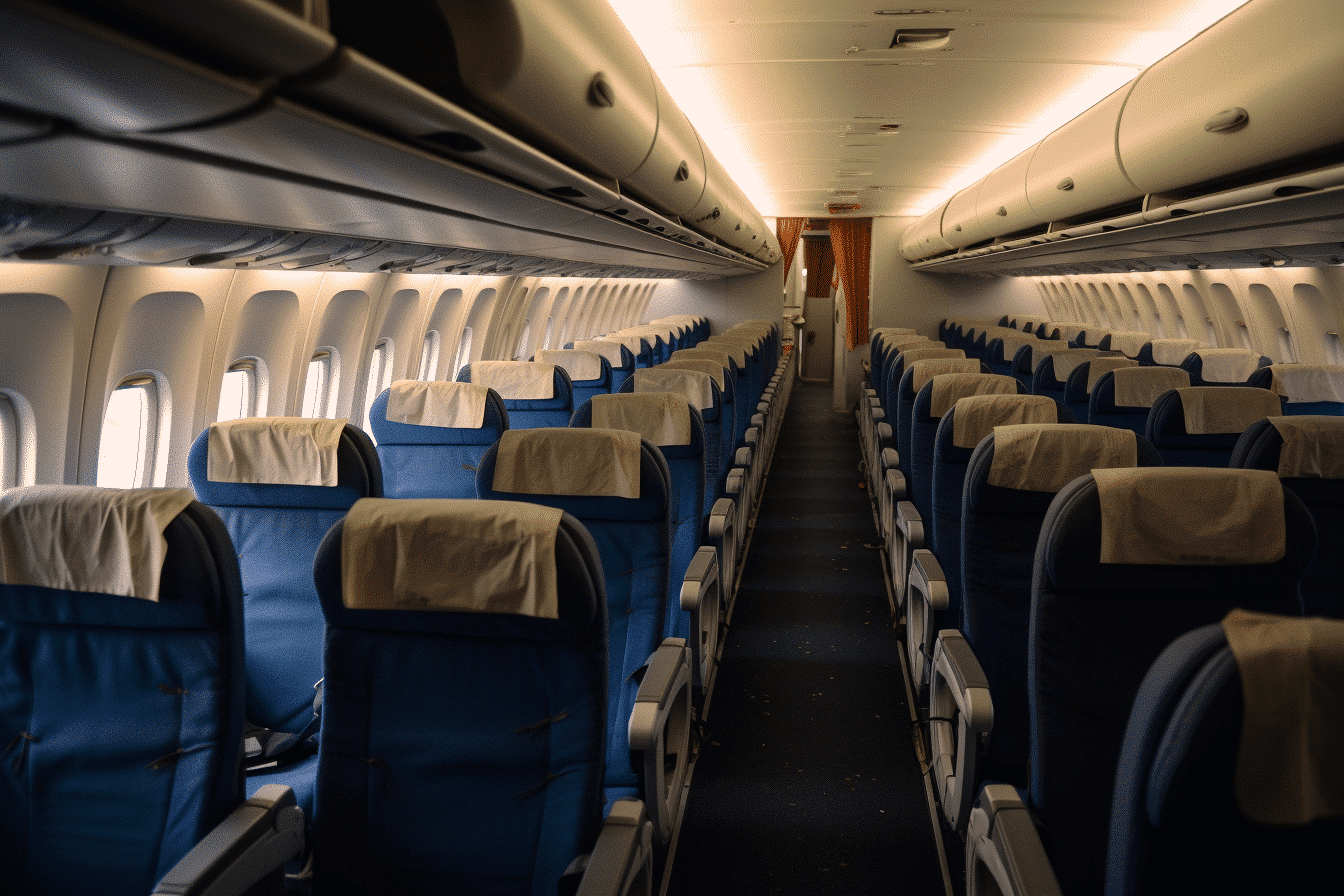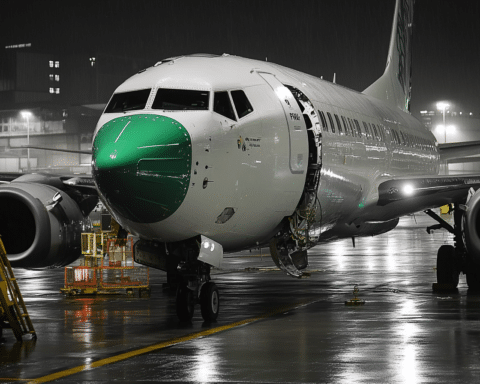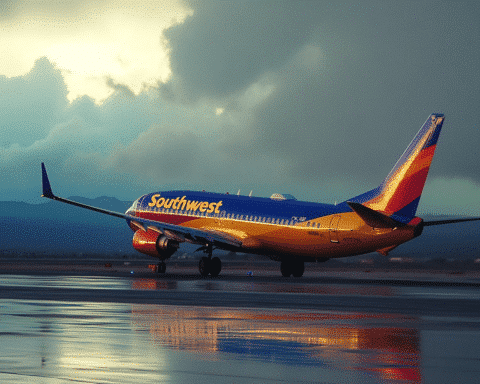Boeing, a giant in the aerospace industry, encountered severe turbulence in the stock market with a 9% drop in shares following a concerning incident involving its 737 Max 9 aircraft. This decline came after the Federal Aviation Administration (FAA) mandated an urgent grounding of several planes for inspections. This decision was triggered by a midflight panel blowout on an Alaska Airlines flight, further complicating Boeing’s struggle to regain stability amidst a series of setbacks and tragedies.
The incident, which occurred on an Alaska Airlines flight at approximately 16,000 feet, led to an immediate response from the FAA. The directive for groundings affected around 171 planes, predominantly operated by Alaska Airlines and United Airlines. This new crisis for Boeing arose just as the company, under CEO Dave Calhoun, was striving to overcome previous challenges, including fatal crashes, pandemic-related supply chain issues, and quality defects.
Ron Epstein, an aerospace analyst at Bank of America, expressed concerns over Boeing’s quality control, especially given the recent delivery of the involved aircraft. His statement, “This aircraft still had ‘new airplane’ smell and the sticker price in its window,” underscores the unexpected nature of this malfunction in a nearly brand-new plane.
The National Transportation Safety Board (NTSB) described the incident as sudden and violent, resulting in significant damage to the aircraft and a disrupted flight experience. This event has raised critical questions about Boeing’s operational and quality standards.
Russ Mould, investment director at AJ Bell, emphasized the accumulated issues Boeing faces, suggesting that this latest incident might lead airlines to reconsider their future fleet plans. Mould also highlighted the increased scrutiny Boeing’s management likely faces from regulators and customers alike, pointing to a challenging road ahead for the company.
In a twist of market dynamics, shares of Boeing’s competitor, Airbus, saw a rise as investors speculated on potential shifts in market share.
Once an unchallenged leader in aerospace, Boeing now navigates a storm of challenges. With its declining shares and the reliability of its flagship 737 Max 9 aircraft under scrutiny, the company must address these critical issues head-on. The FAA’s grounding order and the ensuing fallout reflect a pivotal moment for Boeing as it seeks to reassure the aviation industry and the public of its commitment to safety and quality.




